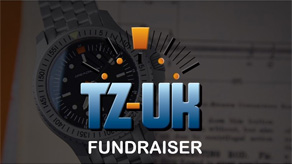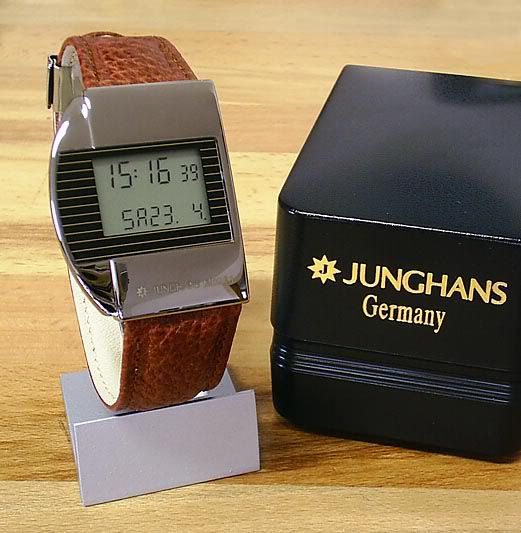Something slightly different but I thought it might prove interesting.
Me? Well I have a Casio waveceptor thingy, no idea what model number. However being an ardent vintage fan I couldn't really get enthusiastic about in in any way shape or form. So a bit of trawling on the bay for something more interesting resulted in me buying this.
Pic nicked from the net
A Junghans Mega 1 :). I've had it for a while now and the Casio has been confined to the sock draw. The Mega 1 is far more stylish and interesting and more importantly, it doesn't confuse my simple brain with functions I'll never use.
A bit of history from the National Maritime Museum website:
The Junghans 'Mega 1' wristwatch, introduced in 1990, was the world's first radio-controlled wristwatch. An antenna buried in the strap receives a long-wave radio signal every morning broadcast on 77.5 KHz (call-sign DCF) from Mainflingen, Frankfurt, carrying time information from Germany's national atomic clocks at Braunschweig. These radio transmissions automatically set the watch right. Similar watches and clocks are made which receive the UK's national time signal broadcast from Rugby, originating from the National Physical Laboratory in Teddington.
Since the earliest days of radio communications, it was realized that radio waves are an ideal means of distributing precise time. From January 1905, the US Navy broadcast regular time signals at Noon (Eastern Standard Time) from Washington, D.C. Germany and France followed suit in 1910, the French signal being transmitted from the Eiffel Tower at midnight.
These early time signals required a special receiver, but in 1922, with the first public radio broadcasts by the British Broadcasting Company, the opportunity was taken to provide precise time, with the announcer playing the Westminster chimes on a piano. Two years later the BBC introduced its six-pip time signal, the brainchild of electric clock manufacturer Frank Hope-Jones and the Astronomer Royal, Sir Frank Dyson.
From the early 1970s, battery-driven quartz clocks have been made which automatically correct themselves on a daily basis using one of the digitally coded time signals now broadcast across the world.
So the big question is what do you use?
Cheers,
Gary







 Reply With Quote
Reply With Quote